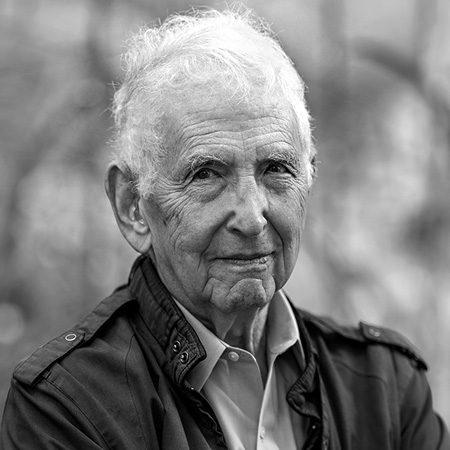Might former President Trump and key advisors be liable on murder charges for the deaths of hundreds of thousands of Americans from the coronavirus pandemic?
The iconic "Pentagon Papers" whistleblower Daniel Ellsberg raised that question in a keynote address at the just-concluded annual "Whistleblower Summit & Film Festival" that continues to empower whistleblowers and encourages others to stand for truth and justice.
The still-eloquent Ellsberg, shown above in a 2020 photo from the collection of his archives at the University of Massachusetts at Amherst, used his talk on July 30 to praise whistleblowers and extol their necessity along with a supportive public in line with the 10-day event's theme: "50 Years of the Pentagon Papers and Investigative Journalism."
More broadly, Ellsberg noted deadly threats to Americans and to those around the world from disasters caused by climate change, which he described as similarly downplayed by officials for political reasons.
It was 50 years ago this summer that Ellsberg, a former Defense Department analyst, courageously disclosed in 1971 via the New York Times the "Pentagon Papers" documents showing, among other scandals, that four U.S. presidents had been systematically lying to the American people about causes and secret operations in the horrific Vietnam War.
He was later indicted on espionage charges in a stunning use of the anti-spy law to target a man who only wanted to alert the American public to their own taxpayer-funded operations. The charges were dropped on the grounds of prosecutorial misconduct because Nixon officials had arranged a burglary of his psychiatrist's office to try to find material to discredit him.
On Friday, Ellsberg praised whistleblowers who risk everything to help the public. Also, he noted with alarm what he called a dangerous tendency by American policymakers and pundits almost across the political spectrum to describe China and Russia as "the enemy." He decried such name-calling as increasing the chances of a nuclear war.
Ellsberg's talk culminated the speaker program of this year's expanded Summit & Festival that began on July 23 and ended on Aug. 1 with the last of some thirty documentary films and shorts illustrating whistleblower themes.
Among the panels was "The Pentagon Papers and Watergate Revelations After Five Decades: What's the Rest of the Story?" which was organized and moderated by this editor as the opening session of the speaking program.
The panelists were former Washington Post editor Barry Sussman and two critics of the Post's coverage, authors Jim Hougan and John O'Connor.
The discussion was rare and in keeping with the whistleblower theme because prominent journalists or officials famous for their 1970s work exposing Nixon Administration wrongdoing related to the 1972 burglary seldom appear at the same session as critics of that coverage -- even though most critics concede that most reporters, officials and burglars themselves failed at the time to understand such vital questions as who ordered the break-in or why.
That's the "rest of the story" that our panel sought to unravel with a vigorous give-and-take about long-hidden incentives.
Sussman had been Washington Post city editor when DC police arrested burglars for breaking into a suite of the Democratic National Committee headquarters in Washington, DC.
Sussman was soon named special Watergate editor, helping direct the coverage that won a Pulitzer grand prize for the newspaper. In 1974, he authored "The Great Cover-up: Nixon and the Scandal of Watergate," a best-seller and widely praised account whose fifth edition will be published at the end of this year with an update focused on the enduring lessons for today of the abuses of presidential power that the scandal uncovered.
(Note: You can view every article as one long page if you sign up as an Advocate Member, or higher).






